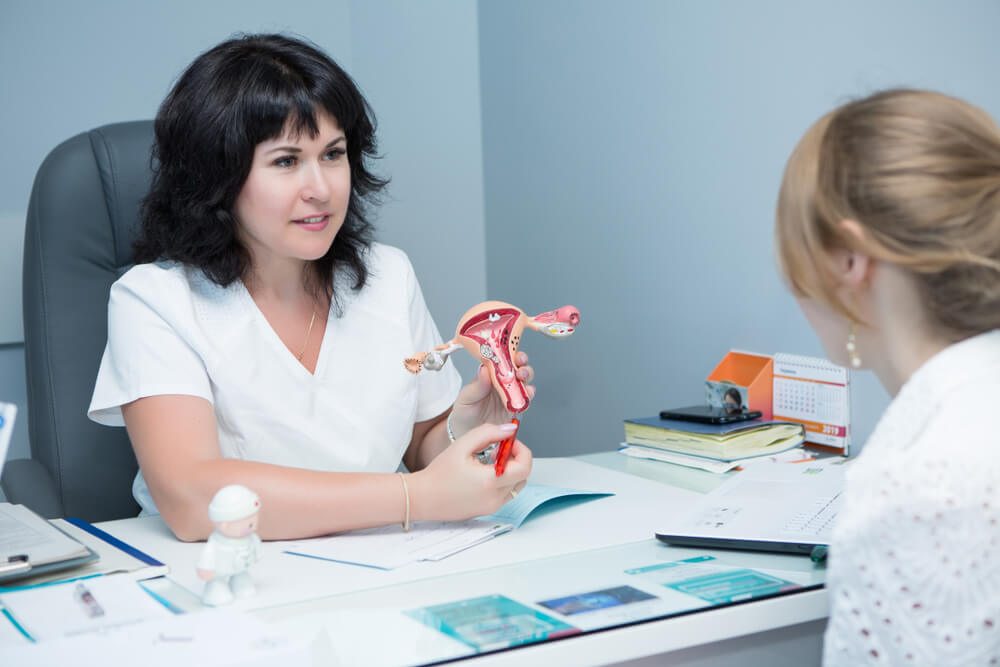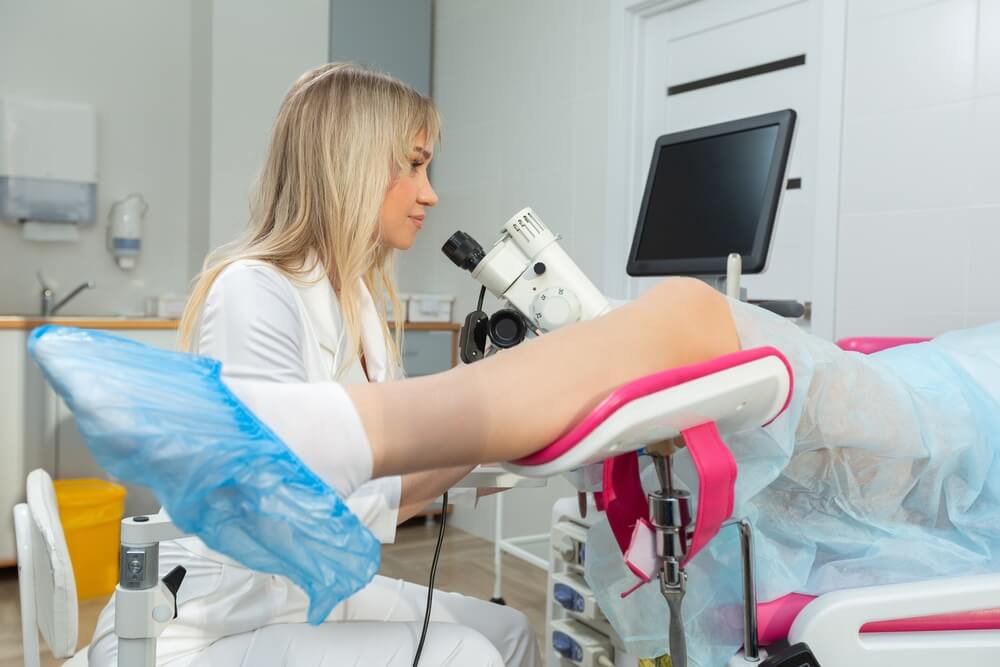Your First Gyno Exam
Girls entering adolescence must receive proper, preventative healthcare. Starting between the ages of 13 and 15, medical professionals recommend annual checkups that focus on female health and the reproductive system. These checkups are called well-woman visits which focus on preventative care, meaning small issues can be caught before they become more troubling concerns. We at University Park OBGYN offer teen gynecologist exams, and here is a better idea of what you can expect at your first gynecology visit.
Tips For Your First Gynecologist Appointment
Before you head to the gynecologist, remember that there’s nothing to be afraid of. If you’re looking for an extra boost of confidence, here are some tips that can help you feel more prepared during your first visit:
- Understand why you want to see a gynecologist. Doing this narrows the scope of your visit. When you know the reason behind your appointment, it’s easier to stay focused and get the questions you have answered.
- Let your doctor know if a part of the exam hurts. If any part of the exam feels uncomfortable, speak up, and let your doctor know. For example, If you get a pelvic exam, the speculum used during the vaginal and cervical exam comes in various sizes. If you think the speculum size they use may hurt, have them try a smaller one.
- Let them know if you’re on your period. For the most part, being on your period doesn’t affect your appointment unless your doctor examines your discharge. Despite this, your menstrual cycle may affect your Pap test or STI testing, so let the office know ahead of time.
Why is a Teenage Gyno Exam Important?

Teenage gyno exams can make any young woman feel nervous or embarrassed, but there are ways to help your child feel more comfortable about their first gyno exam. For starters, explain why a girl’s exam is needed, then let them know what to expect during the gynecology visit, discussing any questions or fears that might come up. Many people, especially younger people, may associate the doctor with being unwell. It is important to explain that well-woman visits help to relay important information, prevention, and treatment regarding women’s health. Here’s how:
Information – At their first gynecology visit, they will learn accurate information and be able to ask questions in confidence about sex, sexuality, menstruation, and the changes happening in their body during puberty.
Prevention – A girl’s exam can help a young woman begin learning about preventative care, such as pregnancy prevention, STI and STD prevention, and maintaining a healthy lifestyle.
Treatment – Teen gynecologist exams can be useful for early treatment of any problems, like missed or irregular periods, abdominal or pelvic pain, and otherwise.
For many teens, their first gynecology appointment may just involve having a conversation with their doctor. For others, a physical gyno exam may take place. Reassure your daughter that the exam is a quick and painless process that helps manage and maintain their long-term health. You should discuss what happens during a pelvic exam, but know that they are typically recommended beginning at age 21 or when someone becomes sexually active. If your daughter encounters problems such as abnormal vaginal discharge or irritation, painful periods, or heavy bleeding, a pelvic gyno exam may be needed sooner.
Choosing a Gynecology Provider
To get your daughter feeling more comfortable about their first gyno exam, involve them in the process of choosing their doctor. As parents and guardians, we typically make all of the health choices for our children as they are growing up, but this is the time to get your child involved. To start, ask your daughter what they would prefer or feel more comfortable with in a doctor. Here are some questions to ask:
- Would you prefer a male or female provider?
- Would you prefer a younger or older provider?
- Would you like to stick to a family physician who provides women’s care?
- Would you like to see someone new?
- Would you like to see my women’s health provider?
Often, your family doctor or pediatrician can recommend a women’s healthcare provider to suit your child and family’s needs. If there is a particular hospital or medical practice your family trusts, it is worth getting a recommendation in that network. As a parent, here are some questions you can and should ask potential healthcare providers:
- Do you have board certification?
- What is your approach when it comes to discussing sexual activity?
- Do you have experience with teenage gyno exams?
- Who will be seeing my daughter each visit or be in the exam room?
- What is your confidentiality policy?
After asking these questions, you can share the answers and discuss them with your daughter. Like choosing any healthcare provider, you may speak to a few different doctors before finding the right fit. To make your daughter feel more comfortable during their girl’s exam, ask if they would like you to accompany them in the exam room or if they would prefer privacy. Regardless, it is useful to give your child alone time during their gynecology appointment so they can feel at ease about asking questions and get to know their provider.
Questions to Expect at the Gynecology Visit
At their first gynecology visit, your child will be asked about their medical history by their doctor. The answers will help the doctor determine which tests to carry out and what issues should be discussed. If you feel your child will more truthfully answer these questions without you being present in the examination room, allow them to have that confidential moment with their doctor to ensure they are evaluated adequately. Your child may be uncomfortable answering honestly, but it is important to remind them before the gyno exam that these answers are confidential and being truthful is ultimately for their well-being.
Here are some questions to expect during a gynecology exam:
- What was the date of your most recent menstrual period?
- Are you currently, or have you ever been sexually active, including oral and penetrative sex?
- If you are sexually active, what form of birth control is being utilized for pregnancy and STI/STD prevention?
- Do you experience any irregularities during menstruation, such as discharge, itching, discomfort, or sores in the vaginal area?
- Are you currently pregnant, or is there a chance you could be pregnant?
The Physical Exam

Before the appointment and physical gyno exam take place, talk it over with your child, so they know what to expect, why the doctor is doing the exam, and so they can feel better prepared. First, the nurse or physician assistant will check their vitals, including heart, neck, lungs, blood pressure, and belly.
Although breast cancer is rare in teenagers, a breast exam is an important part of the physical exam during a visit. This allows the doctor to rule out any lumps, cysts, or breast issues. These things give a general sense of good health and something to note in their chart for future exams to spot any changes.
Next, the doctor will perform an external exam. Let your child know they will have to undress, wear a gown, and will most likely have to put their feet in stirrups for the examination. The pelvis and thighs will be covered with a sheet, and they will be lying down with bent knees and legs spread apart. The doctor will then check the vulva or external genitalia. If an internal exam is found necessary, the doctor will place one hand on the belly and one to two fingers inside the vagina, checking for the position and size of the uterus and ovaries.
A speculum, which is a tool that allows the doctor to examine the cervix and perform tests such as pap smears, may be utilized. Pap smears are usually recommended starting at age 21, then every three years. During a pap smear, cells are scraped from the cervix and sent to a lab to review for any changes in cells. Testing for STIs and STDs is not a regular part of a well-woman exam, but sexually active girls should be screened. This may be done through blood and urine tests, as well as the pap test. Your doctor may mention the HPV vaccine as well, which is recommended for teenagers to protect against primary strains of HPV that can cause genital warts and some kinds of cancer, including cervical cancer.
Let your child know that while there may be some pressure, this is not a painful exam! Remind them to try to stay relaxed and focus on their breathing, which will help relax the stomach and vaginal muscles as well. The key to a calm and successful first gynecology exam is keeping your child informed, prepared, and in the know about what will be discussed and taking place during the appointment.
An Annual Gyno Exam is Essential!
Starting with a teenage gyno exam, your gynecology visits will remain an essential step in your preventative and primary care, even after menopause! A gyno exam is just like any other doctor’s visit – you go to take care of yourself and your health, and they are crucial in maintaining long-term wellness. Gynecological care is so essential, it is necessary to find the right provider! At University Park OBGYN, our highly trained, skilled, and compassionate team is here to provide you with top-of-the-line care, from your gir’ls exam to pregnancy, to menopause and beyond. Visit our website and give us a call to set up your and your daughter’s well-women visits today!


